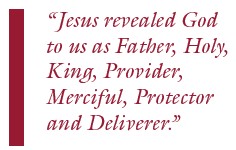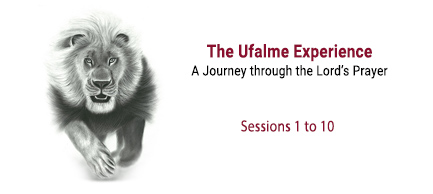Back to series


Read and reflect on the following article by Rev. Moses Kimani
(Download this article as a PDF).
Understanding Worship
Let us begin by briefly unpacking what we mean by “worship”. What is the first image that comes to your mind at the mention of the word “worship?” For many of us, it’s the image of a church building with people in it singing songs to God and performing religious rituals. While these activities may be a part of worship, they do not comprise the full picture of what it means to bring true worship to God.
Worship and Obedience
Throughout the Bible, we see that people worshiped God as they encountered Him. In each case, worship was a response to their experience of God. We can take a cue from that and begin our definition of worship as ‘man’s response to God’ – who God is, what He has done and how He has revealed Himself to us’. But that is not all. The Bible also teaches us that there is a way God wants to be worshiped. This brings to mind the idea of ‘right’ versus ‘wrong’ worship and ‘acceptable’ versus ‘unacceptable’ worship. Over and over again, we see that ‘right’ and ‘acceptable’ worship is characterized by ‘obedience’. This means that the worshiper has come to God in the way that God wants to be worshiped.
Defining Worship
In order to get a more whole some definition of worship, we shall bring together the ideas of ‘response’, ‘obedience’ and ‘right’ worship. We could then say that “worship is the right, loving and obedient response of man to God—loving Him as Eternal Father, bowing before Him as King, serving Him obediently as Lord, and expressing all this through our daily lives and religious rituals.”1 Another way to look at it would be to say, “worship is the total sum of our relational response to God, expressed through the total giving of ourselves to Him in reverence and service, and in our love for our neighbor.”
Our Response to God
In the remaining part of the discussion, we will explore what it means to respond to God in the ways that He has revealed Himself to us in the Lord’s Prayer. Jesus revealed God to us as Father, Holy, King, Ruler, Provider, Merciful God, Protector and Deliverer. Let us consider the ways we should respond to Him.
 God has revealed Himself to us as our Eternal Heavenly Father, One who deeply loves His children and who in His love has given everything as an inheritance to His children. There are many ways that we could respond to our Heavenly Father but the most basic is to receive His love and to love Him back. God has revealed Himself to us as Holy One. In the Lord’s prayer, we pray that His name will be hallowed or ‘kept holy’. The proper response to God’s Holy name is for us to keep it holy. We do so in two ways.
God has revealed Himself to us as our Eternal Heavenly Father, One who deeply loves His children and who in His love has given everything as an inheritance to His children. There are many ways that we could respond to our Heavenly Father but the most basic is to receive His love and to love Him back. God has revealed Himself to us as Holy One. In the Lord’s prayer, we pray that His name will be hallowed or ‘kept holy’. The proper response to God’s Holy name is for us to keep it holy. We do so in two ways.
First, we should avoid misusing His name, especially by desisting from using swear words (Exodus 20:7). As Jesus taught, let your ‘Yes’ be ‘Yes’ and your ‘No’ be ‘No’” (Matthew 5:37). The second way that we apply this is to live to honor and not bring shame to God’s name. When we live lives of sin while calling ourselves Christians, this brings shame to God’s name. Instead, let God’s light shine through you as people see God doing good things through you. They will attribute your good works to your Father in heaven (Matthew 5:16).
God has revealed Himself to us as King. As God’s children, we are not merely subjects in His kingdom, we are co-heirs along with Jesus (Romans 8:15b-17). Notice that although God is King of all the universe, Jesus instructs us to refer to Him not as “Our Almighty King in Heaven”, but as “Our Father in Heaven”. God is first our Father and then our King. As sons in the Kingdom, God has chosen to exercise His reign though us. We bring His kingship into effect here on planet earth. The proper response is for us to seek the fulfillment of God’s reign at all times, wherever it is that we find ourselves. This response comes with a special reward. Jesus promised that if we make God’s kingdom our primary and only focus, God will meet all our needs (Matthew 6:31-33).
Another way in which God has revealed Himself to us is as Ruler of all the earth. That is why as we pray the Lord’s Prayer, we ask for His will to be accomplished here on earth just as He has willed it in heaven. The acceptable response is for us to seek to learn and to know God’s will and, having known it, to obey it. This may be what King David meant when he said, “I seek you with all my heart; do not let me stray from your commands” (Psalm 119:10). In this way, we live lives that are obedient to God’s will. We learn God’s will through the practice of listening in prayer and the reading and hearing of God’s Word (John 17:17).
God has revealed Himself as Provider. Child of God, please understand that it is your Heavenly Father’s pleasure to attend to you and to provide everything that you need. The proper response is for us to bring every need to God in the full faith that He knows our needs and is pleased to attend to us (Philippians 4:6-7). He will provide. This kind of trust-filled dependence is best expressed in the practice of prayer. And when God provides for us, let us receive His provision with humility and thanksgiving, always remembering that all good things come from Him (James 1:17, Deuteronomy 8:10-18).
God has revealed Himself as the Merciful God, forgiving us all our sins, even as we forgive those who have wronged us. Two related responses are required. The first is that we should bring our sins to God daily, seeking forgiveness. He has promised that when we do so, He will forgive us (1 John 1:8-10, Psalm 103:11-12). The second response is connected to the first. Just as we look to God to forgive us of our wrongdoing, He requires that we forgive everyone who has wronged us. If we do not forgive, we too shall not be forgiven before God, even if we have asked for forgiveness (Matthew 6:14-15). In God’s eyes, our forgiveness is dependent on two things. First, that we forgive others. Second, that we seek His forgiveness. These two work in tandem.
God has revealed Himself as our Protector. We respond by entrusting ourselves and all the affairs of our lives to God. God did not create us and place us here on earth, only then to forget about us and leave us to fend for ourselves. Right from the start, He intended that He would walk with us and we with Him, and that He would be involved in every facet of our lives. He says, “I will never leave you nor forsake you” (Hebrews 13:5b). As we entrust ourselves and all our affairs to God, He steps in to direct our path, to keep us holy and to protect us from falling away on account of temptation (Proverbs 3:5-6, 1 Corinthians 1:8-9, 1 Thessalonians 5:23-24, Jude 1:24-25).
God has revealed Himself as our Deliverer. He delivers us from the Evil One and all his evils. You see, the Devil wants nothing good for anyone. Jesus referred to him as the thief who comes to steal, kill and destroy (John 10:10). But God sent His Son, Jesus, so that in Him we would be delivered (John 3:16). Indeed, God is our Mighty Deliverer, whose deliverance is for the present life and for all eternity (Psalm 118:14, 124:8, 144:1-2). When the Devil raises a fight against us, as we are bound to experience from time to time, our response should be to run to God, our Mighty Deliverer, who trains our hands for war and fights for us to victory.
For God’s Glory
In conclusion, worship is our response to who God is and what He does as He reveals Himself to us. As we respond to God, our worship will take shape and our lives will be a pleasing sacrifice for Him. In this way, His kingdom will be manifested, His power will be displayed before a watching world, and His glory will shine through. And it will be true of our lives, “For the kingdom, the power, and the glory are yours. Now and forever.”
Footnote:
1. Adapted from Music as an Essential for Congregational Christian Worship by Tim Gough, p.8.

Moses Kimani
Worship MinisterRev. Moses Kimani is the Africa Coordinator for United Adoration which seeks to revitalize the creativity of the local church by empowering artists to create in their own language, culture, and context. Moses is a song writer, worship and discipleship leader, and has served as the Founding Chaplain for Africa Let’s Worship (AFLEWO).

 COPYRIGHT: This publication is published by C.S. Lewis Institute; 8001 Braddock Road, Suite 301; Springfield, VA 22151. Portions of the publication may be reproduced for noncommercial, local church or ministry use without prior permission. Electronic copies of the PDF files may be duplicated and transmitted via e-mail for personal and church use. Articles may not be modified without prior written permission of the Institute. For questions, contact the Institute: 703.914.5602 or email us.
COPYRIGHT: This publication is published by C.S. Lewis Institute; 8001 Braddock Road, Suite 301; Springfield, VA 22151. Portions of the publication may be reproduced for noncommercial, local church or ministry use without prior permission. Electronic copies of the PDF files may be duplicated and transmitted via e-mail for personal and church use. Articles may not be modified without prior written permission of the Institute. For questions, contact the Institute: 703.914.5602 or email us.
Speakers

Moses Kimani
Worship Minister
Team Members

Moses Kimani
Worship MinisterRev. Moses Kimani is the Africa Coordinator for United Adoration which seeks to revitalize the creativity of the local church by empowering artists to create in their own language, culture, and context. Moses is a song writer, worship and discipleship leader, and has served as the Founding Chaplain for Africa Let’s Worship (AFLEWO).



